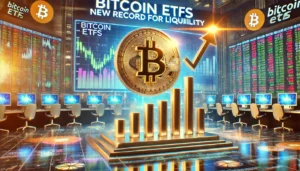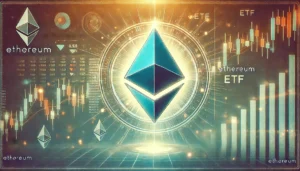World Economic Forum study shows that 98% of central banks are considering CBDCs
2 min readThe World Economic Forum (WEF) recently published a report looking at wholesale central bank digital currencies (wCBDCs). The document examined ongoing initiatives, potential use cases in financial markets, and the potential of wCBDCs to alleviate significant industry challenges and solve key problems.
The World Economic Forum (WEF) 98% of central banks worldwide are conducting research
Central banks worldwide are conducting research, pilot programs or implementing CBDCs to improve the functionality of and expand access to central bank money (CeBM).
“CeBM is ideal for systemically important transactions despite the emergence of alternative payment instruments,” the report says. “Wholesale central bank digital currency (wCBDC) is a form of CeBM that could open up new economic models and integration points that are not possible today.”
More efficiency in interbank business with CeBM
The report states that CeBM is particularly well suited to interbank payments and securities transactions due to several key characteristics. First, CeBM eliminates credit and liquidity risks, thereby complying with the recommendations of the Principles for Financial Market Infrastructures (PFMI) for critical transactions. This reduces the possibility of financial instability in these areas.
Second, the CeBM facilitates the final settlement of transactions. Supported by a solid legal framework, it guarantees the irreversible transfer of assets, thereby promoting trust and stability in the financial system.
Finally, the CeBM promotes financial stability by acting as a virtually risk-free instrument. It complements existing credit creation processes without introducing additional risks, thus ensuring a healthy financial ecosystem.
Unequal processing cycles hinder efficiency
The report identifies eight long-standing challenges in the industry, highlighting four areas where a wCBDC could provide significant benefits. These areas represent opportunities for modernization with wCBDC technology.
A key challenge is the issue of “unequal settlement cycles” in cross-border securities settlements. The globalization of capital markets requires harmonised settlement cycles in different regions. However, most real-time gross settlement (RTGS) systems operate within limited time windows.
For example, the Bank for International Settlements (BIS) has set a narrow five-hour window (from 6 a.m. to 11 a.m. GMT) of maximum overlap between systems. To overcome this limitation, the report suggests that the wCBDC could enable a global settlement window, effectively extending the reach of RTGS systems through near 24/7 operation.
“This report provides important insights to facilitate further research into wCBDC and hopes to serve as a fundamental step towards a more efficient, responsible and secure future for financial markets,” the report said.
Crypto exchanges with the lowest fees 2024






